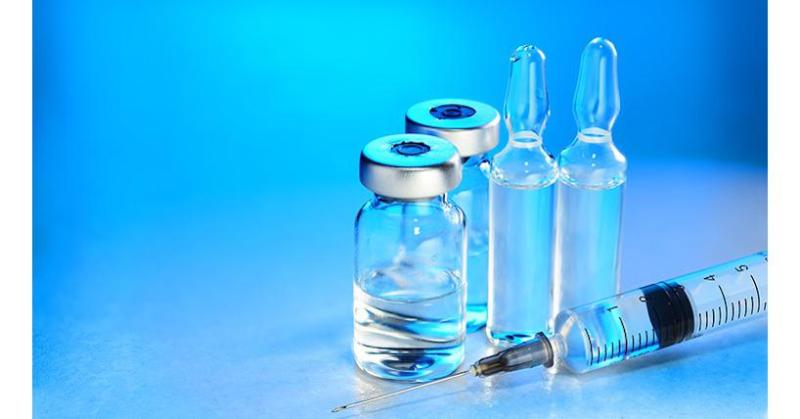Access to Safe and Effective Injectable Medicines
Access to safe, effective and affordable injectable medicines is essential for the treatment of many common illnesses across Africa. Injectables are used to treat conditions like infections, diabetes, cancer and cardiovascular diseases. Increased access to quality injectable drugs over the past decade has helped improve health outcomes for millions of Africans. However, barriers to access still remain in many parts of the continent.
Africa Injectable Drugs has been steadily growing with increasing demand. Improving economic conditions, rising disease burden and increasing investment in healthcare infrastructure are some of the key factors driving growth.
Challenges in Ensuring Quality and Affordability
While access to injectable medicines has increased across Africa, securing quality, safe and affordable drugs continues to pose challenges. Poor quality or counterfeit drugs lead to treatment failure and development of antimicrobial resistance. According to the WHO, over 10% of medical products in developing countries are either substandard or falsified.Weak regulatory frameworks and lack of quality control in some African countries have made it difficult to curb the manufacture and circulation of spurious injectables.
High prices of patented brand name drugs also limit equitable access for patients. Most Africans pay for medicines out-of-pocket and cannot afford expensive treatments. While generic competition has reduced costs to some extent, prices are still higher than international reference levels in several countries. Governments need to implement robust pro-poor pricing policies to enhance affordability of essential injectable medicines.
Rising Investment in Local Manufacturing
To secure reliable supply of quality drugs at affordable prices, more African governments are promoting investment in local pharmaceutical manufacturing. Countries like Nigeria, Egypt, South Africa and Kenya have seen growing investments in setting up manufacturing plants for injectable formulations in recent years.
Local production helps reduce dependence on expensive imports and vulnerability to supply disruptions. It also creates favourable conditions for technology transfer and skills development in the sector. By incentivizing local players, governments aim to gradually substitute imports and generate more cost-competitive injectables to meet domestic demand.
For example, to bridge supply gaps, Nigeria’s Federal Government launched a ?40 billion (US$150 million) support fund for domestic pharmaceutical manufacturers in 2018. Projects supported under this ‘Pharmfund’ initiative include seven new injectable drug manufacturing facilities at different stages of completion across the country. Once operational, they are expected to produce critical injectable medicines like antibiotics, insulin and cancer therapies at 30-50% reduced costs for Nigerian patients.
Similarly, Kenya is promoting the local production of antiretrovirals, anti-malarials, anti-tuberculosis and antivenom serums through public-private partnerships. The country aims to locally manufacture over 60% of its essential medicines by 2022. This will significantly boost access to affordable treatment options for diseases like HIV/AIDS, malaria and snakebites that gravely impact the population.
Role of International Partnerships and Technology Transfer
While domestic initiatives are scaling up, international partnerships are also essential to develop Africa injectable drugs industry capabilities. Technology transfer collaborations between innovative drug makers from developed s and African companies can help plug critical gaps.
For instance, through its bilateral cooperation program with the government of Ghana, Germany-based pharmaceutical major Boehringer Ingelheim assists local firms with process optimization and staff capacity building to produce nebulizer solutions, injections and ophthalmic preparations according to global standards.
Similarly, Chinese injectable drug firms are partnering with Algerian, Egyptian and South African counterparts to build fill-finish facilities and provide technical expertise. Through such partnerships, African countries can acquire advanced production know-how and equipment while multinationals get access to new s across the fast-growing continent.
Increased partnerships between multilateral agencies like the WHO and African regulatory authorities are also strengthening regulatory oversight. This helps boost confidence in locally produced drugs among healthcare practitioners while identifying gaps for reforms. Collaborative pre-qualification programs expedite entry of quality affordable generics, improving treatment outcomes.
With sustained government support, growing investments and technology transfer, Africa injectable drugs on track to meet rising demands of its healthcare system. Equitable access to safe and effective injectable medicines will remain critical for positive health outcomes in under-served populations across the continent.
For Deeper Insights, Find the Report in the Language that You want:
About Author:
Money Singh is a seasoned content writer with over four years of experience in the market research sector. Her expertise spans various industries, including food and beverages, biotechnology, chemical and materials, defense and aerospace, consumer goods, etc. (https://www.linkedin.com/in/money-singh-590844163)
